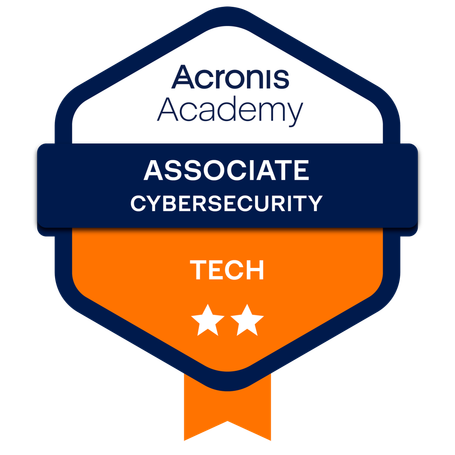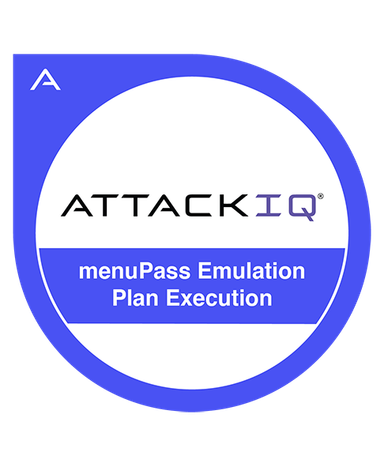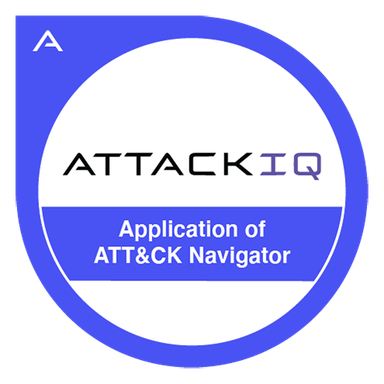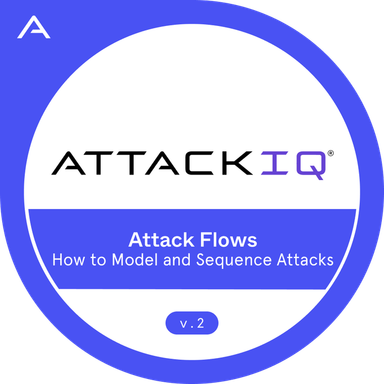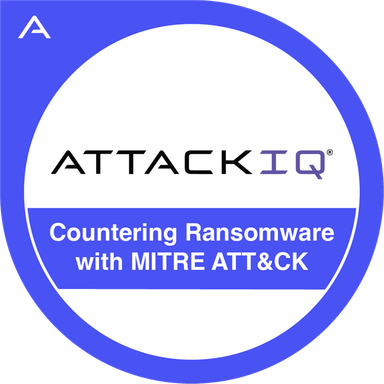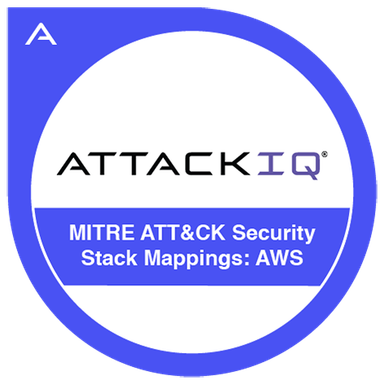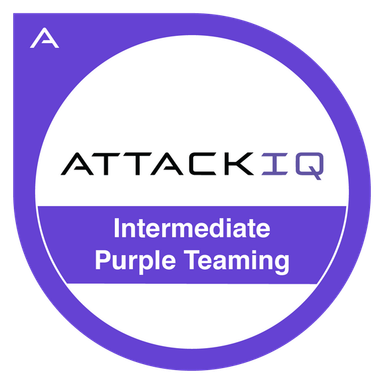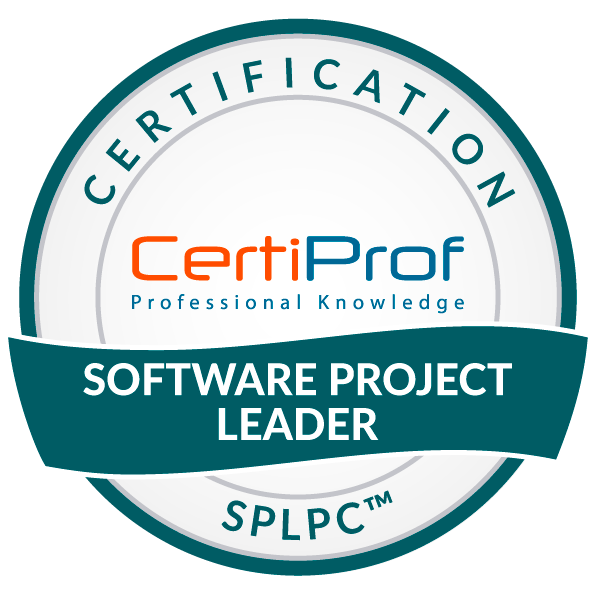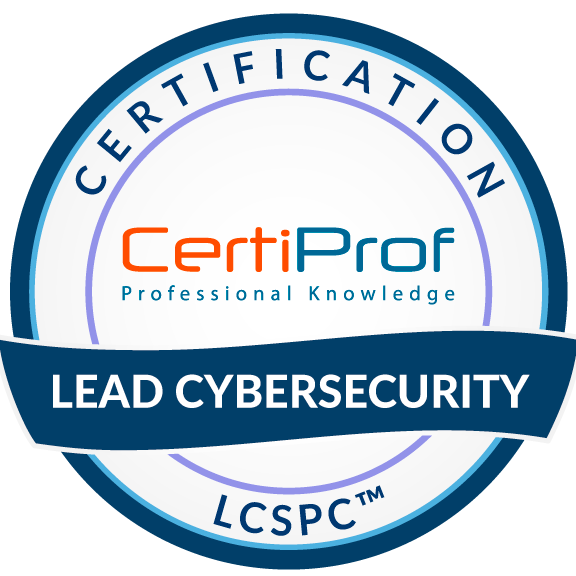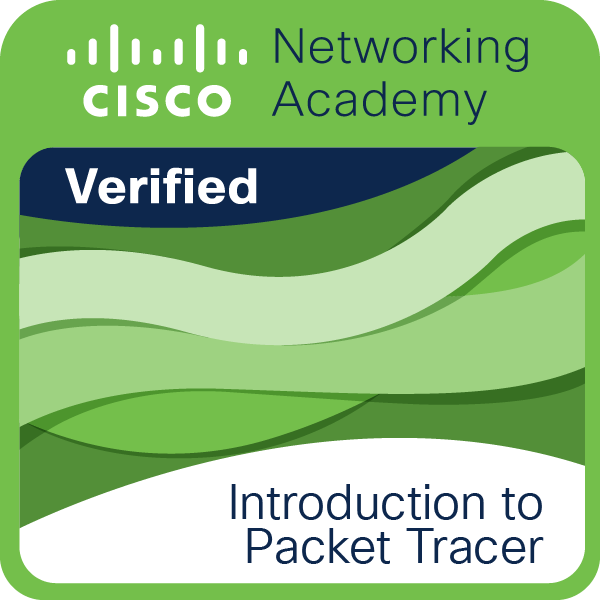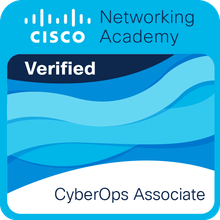Acronis
Acronis Certification is a recognition that individual or Managed Service Providers (MSPs) receive after completing specific training programs offered by the Acronis Academy1. These certifications validate the participants’ understanding and proficiency in effectively using Acronis products and services to ensure cyber protection1.
Acronis offers different training and certification programs to help individuals and MSPs enhance their cybersecurity skills and knowledge1. Whether you and your team are seeking professional certifications or starting an MSP business, Acronis is there to support you at every stage1.
The latest Acronis #CyberFit Academy curriculum features 22 new certification courses, including five recertification courses which reduce annual technical certifications from over 20 hours to less than three hours2. The goal of the program is to recertify existing partners and onboard new partners2.
Acronis Academy has unlocked access for everyone to top-quality on-demand, self-paced e-learning courses and certifications that empower individuals and MSPs to boost their cybersecurity skills and knowledge1.
Please note that the available courses and certifications can vary, so it’s always best to refer to the official Acronis documentation or the Acronis Academy website for the most accurate and up-to-date information13.
.
ATTACKIQ Informed Defense Validated Experience
Certifications and validated skills are important, it shows that you have reached a level of knowledge. Here are my certifications from ATTACKIQ, if you have any questions about any of these please let me know I will be happy to help you.
Click the badge to view either the acclaim Badge or certificate.
Foundations of Operationalizing MITRE ATT&CK (Updated to v13)
September 2020
Updated August 2023
Earners of this badge have demonstrated a foundational knowledge of the MITRE ATT&CK Framework and how to apply it operationally. They have also been exposed to tools such as MITRE ATT&CK Navigator and MITRE CAR that can assist in operationalizing the MITRE ATT&CK Framework. Additionally, earners have acquired foundational knowledge in finding, creating, and testing security analytics.
Foundations of Purple Teaming
September 2020
Earners of this badge have demonstrated a foundational knowledge of Purple Teaming Methodology. They have also demonstrated knowledge of the core concepts, processes, and artifacts underpinning the practice of Purple Teaming. Additionally, earners have acquired the knowledge needed to plan and execute a basic Purple Team Exercise.
Introduction to EASY Framework for Threat Intelligence
Nov 2020
This course walks learners through the EASY Framework, a framework for improving or creating your threat intelligence program. In this course, Chris Cochran and Ronald Eddings present a simple way to avoid headaches and keep your threat intelligence program organized and relevant.
Foundations of Breach & Attack Simulation
December 2020
Earners of this badge have demonstrated a foundational knowledge of Breach & Attack Simulation tools. They have also demonstrated knowledge of the pros and cons of different approaches taken by BAS vendors. Additionally, earners have acquired the knowledge needed to compose basic security testing plans for use with a Breach & Attack Simulation tool.
Uniting Threat and Risk Management with NIST 800-53 and MITRE ATT&CK
December 2020
This training session introduces students to the MITRE Center for Threat-Informed Defense NIST SP 800-53 Control-to-ATT&CK Mapping Project and its products. Students will learn the background of the NIST framework, the project goals, and how to customize and utilize the products.
menuPass Emulation Plan Execution
This training session introduces students to running an adversary emulation plan. Students will learn how to scope out an environment, define emulation plan objectives, and run the emulation plans. Students will follow along with the instructor to learn how to go through the process of manually running through the emulation plan for menuPass Phase 1.
Application of ATT&CK Navigator
This course expands upon the key concepts taught in Foundations of MITRE ATT&CK, with a strong focus on the tools that have been developed to operationalize the MITRE ATT&CK Framework. In this training, students will deep dive into using the ATT&CK Navigator in hands-on lab activities while getting a complete walkthrough of all of the features ATT&CK Navigator has to offer.
Top ATT&CK Techniques
The holder of this badge has a detailed understanding of the Top ATT&CK Techniques tool released by MITRE Engenuity's Center for Threat-Informed Defense (CTID). They have also demonstrated applied knowledge by taking abstract security requirements and turning them into the top ATT&CK techniques the organization should protect and defend against.
MITRE ATT&CK Security Stack Mappings: AWS
The owner of this badge has demonstrated knowledge in utilizing the MITRE ATT&CK Framework to map to Amazon AWS Cloud security controls. They also have demonstrated a deep understanding of the Security Stack Mappings project created by MITRE Engenuity's Center for Threat-Informed Defense.
MITRE ATT&CK Security Stack Mappings: Azure
Earners of this badge have been instructed on the MITRE Engenuity Center for Threat-Informed Defense Security Stack Mappings for Microsoft Azure project. Additionally, they have demonstrated knowledge in how to create their own cloud control mappings and utilize the project to secure Microsoft Azure cloud environments with native security controls.
Mapping MITRE ATT&CK to CVE for Impact
Owners of this badge have demonstrated a thorough understanding of the MITRE ATT&CK to CVE Mapping project from the Center for Threat-Informed Defense. Additionally, they have obtained the skills to map a CVE to the MITRE ATT&CK framework using the methodologies discussed in the project.
Delivering Value with the ATT&CK Sightings Report
The holder of this badge has demonstrated an understanding of the lastest ATT&CK Sightings report from MITRE Engenuity's Center for Threat-Informed Defense. They have demonstrated additional knowledge in how to prevent, detect, and test manually or with the AttackIQ platform for the top techniques disclosed in the report.
Beyond Atomic Testing with Attack Flows
In this 1.5 hour course, students are introduced to testing EDR or AI-based cybersecurity tools utilizing the AttackIQ Security Optimization Platform. This course teaches students why Attack Flows are important to this testing while giving you practical experience with a lab set in AttackIQ's Cyber Range.
AttackIQ Foundational Blueprints
The owner of this badge has demonstrated knowledge in implementing the AttackIQ platform as part of a continuous security lifecycle. They understand the different levels of maturity for implementation and how to continuously update and report on their practice of continuous security optimization.
Safeguarding the Supply Chain
Demonstrated knowledge in the management of supply chain risk. Additionally, they have demonstrated knowledge in advanced topics such as managing the security posture of suppliers, identifying and addressing supply chain risk issues, governance to address supply chain risk
Validating Defenses Quickly with Micro Emulation Plans
Knowledge of the micro-emulation plan project from MITRE’s CTID and its use in testing security controls, the difference between atomic testing and threat emulation, why micro-emulation plans focus on key attack techniques, and how to create and execute micro-emulation plans using the AttackIQ platform. They can also test for specific ATT&CK techniques with the micro emulation plans
Jupyter Notebooks for Security Control Validation
Understanding of Jupyter notebooks and how they can be used as a part of a threat-informed defense. Additionally, they are able to identify key data needed in order to gain budget support, analyze security control behavior in the AttackIQ platform, and gain insights into how security controls on their network respond to attacks.niques with the micro emulation plans
Validating Defenses Quickly with Micro Emulation Plans
Knowledge of the micro-emulation plan project from MITRE’s CTID and its use in testing security controls, the difference between atomic testing and threat emulation, why micro-emulation plans focus on key attack techniques, and how to create and execute micro-emulation plans using the AttackIQ platform. They can also test for specific ATT&CK techniques with the micro emulation plans
Continuous Security Validation Workshop
Validated knowledge of security challenges and how continuous validation can help address them. They have a good understanding of the AttackIQ platform and its architecture and practical experience with the platform through hands-on labs. They also have knowledge of purple teaming and its role in automating security control testing and understand how AttackIQ can aid organizations in validating and improving their cyber readiness.
Unlocking the Power of CTI Blueprints
The holder of this badge has demonstrated knowledge of the CTI Blueprints project and tools released by the Center for Threat-Informed Defense (CTID). Additionally, they have demonstrated the ability to review threat-intelligence information and summarize key details for multiple stakeholders.
Agentless Threat Emulation
with AttackIQ Flex
Demonstrated their knowledge of agentless emulation testing utilizing the AttackIQ Flex platform. They understand how to run baseline and adversary emulation assessments. Additionally, they have proven they can generate emulation reports based on their testing.
Foundations of AI Security
The holder of this badge has acquired foundational skills in AI security, understanding risks and mitigation strategies across different AI types including narrow, general, and super AI. They are proficient in using frameworks like MITRE ATLAS and tools such as OWASP's security guidelines to safeguard AI applications against evolving threats.
Maturing Threat-Informed Defense with M3TID
Demonstrated knowledge in how to mature the three core pillars of threat-informed defense; cyber threat intelligence (CTI), defensive measures, and testing and evaluation. Additionally, they have demonstrated knowledge in how to audit an existing threat-informed defense (TID) program's maturity and provide guidance on a roadmap to a mature TID practice.
Learning Path Certification : Intermediate Purple Teaming
December 2020
Earners of this badge have demonstrated an intermediate knowledge of Purple Teaming Methodology. Building on top of the core knowledge established in Foundations of Purple teaming, students have spent time during classes running through hands-on planning exercises including threat alignment and threat emulation planning.
Learning Path Certification: Intermediate MITRE ATT&CK
July 2021
Earners of this badge have demonstrated knowledge in not only their understanding of the MITRE ATT&CK Framework but also how to implement this framework through the use of adversary emulation plans created by MITRE Engenuity's Center For Threat Informed Defense.
Learning Path Certification: Intermediate Breach & Attack Simulation
September 2022
Earners of this badge have demonstrated an intermediate knowledge of Breach & Attack Simulation. Building on top of the core knowledge established in Foundations of Breach & Attack Simulation, students have spent time during classes running through hands-on planning and implementation exercises with the AttackIQ Platform.
Learning Path Certification: Center for Threat-Informed Defense Research
September 2022
The owner of this badge has demonstrated a deep knowledge of how to implement the projects released by MITRE Engenuity's Center for Threat-Informed Defense (CTID). Additionally, the owner of this badge has certified their knowledge in many ways to utilize the MITRE ATT&CK Framework specifically including mapping ATT&CK to vulnerabilities
AttackIQ Academy's Summer School 2023 learning path.
August 2023
AttackIQ Academy's Summer School 2023 learning path. They have completed and demonstrated knowledge in multiple courses in a range of topics from Purple Teaming, and Breach & Attack Simulation to the ATT&CK Framework and the many tools and projects that support it. These courses include hands-on lab activities and final assessments in which the student must demonstrate their knowledge.
Summer Security Foundations July 2024
Completed the Summer Security Foundations learning path on AttackIQ Academy. They have demonstrated knowledge in threat-informed defense including topics such as Purple Teaming, the MITRE ATT&CK Framework, and Breach & Attack Simulation. In addition, they have demonstrated knowledge in understanding the risks associated with artificial intelligence.
CertiProf Certifications
Certifications are important, it shows that you have reached a level of knowledge. Here are my certifications from certiProf, if you have any questions about any of these please let me know I will be happy to help you.
Click the badge to view either the acclaim dadge or certificate.
Click here to see the certificates
Scrum Foundation SFPC (Re-certified June 2024)
Aug 20, recertified April 2021
Earners of the Scrum Foundation Professional Certificate have developed the entry-level skills in scrum that endorses their fundamental knowledge in this framework, key definitions and roles.The Learning Objectives for this certification are based on: Scrum Guide, 4 values and 12 principles.
Scrum Developer SDPC
Scrum Developer Professional Certification holders have demonstrated an understanding and are committed to creating any aspect of a usable Increment in each Sprint. They are aware that they are accountable for creating a plan for the Sprint, the Sprint Backlog, and instilling quality by adhering to a Definition of Done, adapting their plan each day toward the Sprint Goal, and holding each other accountable as professionals.
Scrum Master SMPC
(2020 update)
(Re-certified June 2024)
Earners of the Scrum Master Professional Certicate will get a general overview and understanding of Scrum theory, practices, and rules with the ability to apply them to all industries. They will be able to demonstrate their knowledge and compression of Agile mindset and values, continuous improvement, team leadership and performance, facilitate scrum events and remove impediments as requiered.
Scrum Product Owner SPOPC
(2020 update)
(Re-certified June 2024)
Scrum Product Owner Professional Certificate earners have demonstrated an understanding of scrum framework with special focus on the role of the product owner with specific skills in user stories, identification of customer needs and prioritization of work with the purpose of delivering value to the organization while maintaining a product and market vision.
Kanban Essentials KEPC
(Re-certified June 2024)
Kanban is a technique used to give work instructions to customers through cards. These cards are made as per each customer requirement with the goal of controlling the progress and be able to have a product or service of good quality.
Kanban Essentials helps particularly to coordinate the production of products and services. It also helps to adapt to different variations of the production of products and services to identify areas of improvement.
Kanban Foundation KIKF
Earners of the Kanban Foundations - KIKF™ certification have a a strong foundation of the fundamental concepts and theories of Kanban and have the capacity of applying Kanban principles in their own organization and can coordinate the production of products and services, also have the awareness to adapt to different variations of product and service production in order to identify areas for improvement
User Stories Foundation USFC
(Re-certified July 2024)
User Stories Professional Certificate earners have the understanding of the power of user stories as a means to fostering cooperation and teaching many things. They mastered the fundamentals of the main characteristics of user stories as communication tools between team members and others interested in product or service development projects, from technology areas or any other business area.
Objectives & Key Results OKRCP (Re-certified June 2024)
OKR Certified Professional earners are enable to facilitate all levels of the OKR life cycle in their organization (or customers), from the development of good Objectives and Key Results to the deployment of strategic, tactical and operational goals, monitoring and closuring with good governance and discipline.
Software Project Leader SPLPC
The holders of this badge are responsible for steering software development projects from inception to completion. They understand the importance of blending technical proficiency, leadership qualities, and project management skills. These candidates are not only adept in software development methodologies but also excel in leading teams, managing resources, and ensuring project milestones are met within time and budget constraints.
DEVOPS Essentials DEPC
(Re-certified June 2024)
DevOps Essentials Professional Certificate - DEPC® earners have a fundamental understanding of DevOps that encompasses culture, processes and people. This knowledge allows for a higher level of awareness and contributes to a change in mindset and process from traditional approaches, which helps even more if the organization is already adopting agile principles.
Certiprof Design Sprint Certification CPDSC
CertiProf Design Sprint Certification holders demonstrate that they are familiarized with the experimentation and innovation process. They understand the practical step-by-step for the development of solutions, whether is service, product, or problem solving which is based on design thinking and agile framework.
Design Thinking DTPC
(Re-certified June 2024)
Design Thinking Professional Certificate earners have an understanding of key concepts and definitions to improve their interaction with the user experience and it is divided in five phases: empathize, define, ideate, prototype and evaluate having the capacity to create useful proposals that adapt to the real needs of people.
Innovation Management Professional Certification - IMPC
Innovation Management Professional Certification earners understand key concepts and definitions that help to promote business innovation successfully and are aware that this is intended to encourage a process or culture of initiatives that focus on changes or disruptive steps that significantly transform the business meaningfully.
Help Desk HDPC
Help Desk Professional Certificate holders have demonstrated the adoption of good practices in the IT support industry, management skills, financial management, soft skills, techniques, and technical assistance service tools, among others. They understand the standardized and consistent application to better practices in the IT support industry and to help peers with the knowledge in the appropriate management of Help Desk techniques.
Lead Cybersecurity LSCPC
(Re-certified June 2024)
The holder of this badge has validated their skills and knowledge in the fundamental concepts of "NIST Cybersecurity 1.1 (Cybersecurity Framework)", have the understanding of the key concepts of the framework, including the implementation of the cybersecurity framework. Can establish and improve communicative cybersecurity and possess the methodology to protect privacy and civil liberties.
Ethical Hacking Professional Certification - CEHPC
This badge holder has demonstrated the knowledge and skills to identify information system vulnerabilities, use the same tools and techniques as malicious hackers, and lawfully and legitimately conduct ethical hacking activities to improve system security by proactively identifying and addressing security weaknesses before adversaries exploit them
ISO 22301 I22301A Auditor 2019
Holders of this certification have demonstrated an understanding of the principles, concepts and requirements of ISO/IEC 22301. They have demonstrated skills and ability to conduct audits and the structure and requirements for implementing a BCMS. improvement.
ISO 27001 I27001A Auditor 2022
Earners of the ISO/IEC 27001 Internal Auditor have demonstrated a general knowledge of the standard and general concepts to develop an audit in compliance with ISO 27001 and how to evaluate the effectiveness of corrective actions applied to maintain and continuously improve an information security management system (ISMS)
ISO 27001 Foundation I27001F 2022
Holders of this certification have demonstrated an understanding of the Principles, concepts, and requirements of ISO/IEC 27001:2022, its understanding, and how it can be used. They know the fundamental requirements for the implementation of an ISMS and the great importance of maintaining continuous process improvement.
ISO 27001 Foundation I27001F 2013
Holders of this certification have demonstrated an understanding of the Principles, concepts and the requirements of ISO/IEC 27001:2013, its understanding and how it can be used. They know the fundamental requirements for the implementation of an ISMS and the great importance of maintaining continuous process improvement.
Cyber Security Foundation CSFPC (re-certified June 2024)
The holder of this badge has validated his skills and knowledge in Cyber Security Fundamentals understanding key principles and concepts such as risk management, human factor, privacy and online rights, malware and attack technologies, adversarial behavior, security operations and incident management using as a source the Cyber Security Body of Knowledge (CyBOK) version 1.0 CyBOK Version 1.0 © Crown Copyright, The National Cyber Security Centre 2019.
Business Model Canvas Essentials BMCE
The holder of this badge have developed entry-level skills in Business Model Canvas that endorse their fundamental knowledge of developing new business models and documenting existing ones. They have demonstrated an understanding of the different blocks of the Business Model Canvas and its functions, the Lean Startup Method and Continous Innovation, and the Lean Canvas and its function.
BI Foundation BIFPC
Earners of the BI Foundation Professional Certification have a basic knowledge of Business Intelligence. They can know the History, Implementation Process, Architecture, and type of BI Analysis. They can understand business intelligence concepts and how you can develop visualizations and data knowledge to make better business decisions.
Digital Marketing DMPC
(Re-certified June 2024)
Digital Marketing Professional Certificate holders have detailed knowledge of digital marketing concepts, strategies and application, including email and Search Engine Optimization (SEO) campaigns, Pay-Per-Click (PPC) campaigns, social marketing, retargeting and the integration of digital marketing with traditional marketing. They have validated their skills and knowledge to achieve more visibility in the digital world.
Remote Worker RWVCPC
Earners of the Professional Certificate of Remote Working and Virtual Collaboration are aware and very attentive to the practices, tools and techniques accepted worldwide to perform Remote Working, being aware that the remote experience can be managed in a better way and with a high degree of sustainability. They have the knowledge of the best practices for a productive and successful Remote Working.
Life Long Learner 2021
Earners with this particular badge have proven their unwavering commitment to lifelong learning, which is vitally important in today's ever-changing and expanding digitalized world. It also identifies the qualities of an open-minded, disciplined and constantly evolving mind, capable of using and contributing its knowledge to the development of a more equal and better world.
Life Long Learner 2020
Earners with this particular badge have proven their unwavering commitment to lifelong learning, which is vitally important in today's ever-changing and expanding digitalized world. It also identifies the qualities of an open-minded, disciplined and constantly evolving mind, capable of using and contributing its knowledge to the development of a more equal and better world.
Subject Matter Expert SME Apr 2021
Earners of the Subject Matter Expert badge are influential people in their fields of expertise who participate on the creation and review of the course development and exam content creation as part of our certification exam development process. Subject Matter Experts (SMEs) are crucial to the progress and maintenance of certification exams.
CSI Linux
Digital Investigations
The CSI Linux Academy is a training platform that provides both training and certifications for cyber forensics and cybersecurity. The academy covers a wide range of topics, including computer forensics.
Cisco
al Courses from Cisco www.netacad.com
Engaging Stakeholders for Success
Cisco verifies the earner of this badge successfully completed the Engaging Stakeholders for Success course and achieved the student level credential. Earner has knowledge of the value of identifying stakeholders and their needs, common pitfalls when working with stakeholders, and appropriate techniques for engaging stakeholders. Completed up to 24 scenario-based interactions and one immersive branching scenario.
Introduction to IoT
Cisco verifies the earner of this badge successfully completed the Introduction to Internet of Things course. The holder of this student-level credential has introductory knowledge of IoT and has an understanding how it enables the Digital Transformation along with emerging technologies such as data analytics, AI/ML and the increased attention on cybersecurity. They understand the importance of Intent Based Networking to be able to connect and secure tens of billions of new devices with ease.
Introduction to Cybersecurity
Cisco verifies the earner of this badge successfully completed the Introduction to Cybersecurity course. The holder of this student-level credential has introductory knowledge of cybersecurity, including the global implications of cyber threats on industries, and why cybersecurity is a growing profession. They understand vulnerabilities and threat detection and defense. They also have insight into opportunities available with pursuing cybersecurity certifications.
Cybersecurity Essentials
Cisco verifies the earner of this badge successfully completed the Cybersecurity Essentials course. The holder of this student-level credential has foundational knowledge of cybersecurity, including the basics of network security, encryption and cybersecurity laws. The holder has been introduced to tactics and techniques used by Black Hats, and the principles of Confidentiality, Integrity, and Availability used by White Hats to defend networks.
Introduction to Packet Tracer
Cisco verifies the earner of this badge has knowledge and skills to create digital models of IP Networks and IoT Systems using Cisco Packet Tracer.
Networking Essentials
Cisco verifies the earner of this badge successfully completed the Networking Essentials course and achieved this student level credential. Earner has knowledge of fundamentals of networking, how devices communicate, network addressing and services, how to build a home or small office network and configure basic security, basics of configuring Cisco devices, and the basics of testing and troubleshooting network problems. Participated in up to 19 labs and 24 Cisco Packet Tracer activities.
Networking Basics
Cisco verifies the earner of this badge successfully completed the Networking Basics course and achieved this student level credential. Earner has knowledge of the types of networks, how they work, how devices send and receive data, the types of network cabling, how IP addresses find information on the Internet, how transport and applications operate, and has practiced building a home wireless network. Participated in up to 13 Cisco Packet Tracer activities.
Networking Devices and Initial Configuration course
Cisco verifies the earner of this badge successfully completed the Networking Devices and Initial Configuration course and achieved this student level credential. Earner learned characteristics and benefits of cloud and virtualization, explored how to provide Internet Protocol (IP) addresses to devices, calculate an IP addressing scheme, configured Cisco devices to create a small network and tested for connectivity issues. Participated in up to 7 labs and 12 Cisco Packet Tracer activities.
EndPoint Security
Cisco verifies the earner of this badge successfully completed the Cyber Threat Management course. The holder of this student-level credential is familiar with cybersecurity policies and governance to ensure an organization complies with ethics standards and legal and regulatory frameworks. They understand how to do a network vulnerability assessment and create a risk management plan, as well as post-incident response.
Cyber Threat Management
Cisco verifies the earner of this badge successfully completed the Cyber Threat Management course. The holder of this student-level credential is familiar with cybersecurity policies and governance to ensure an organization complies with ethics standards and legal and regulatory frameworks. They understand how to do a network vulnerability assessment and create a risk management plan, as well as post-incident response.
Network Defense
Cisco verifies the earner of this badge successfully completed the Network Defense course. The holder of this student-level credential has a broad understanding of techniques to monitor and protect the network, including access control, firewalls, cloud security, and cryptography. They are also familiar with how to evaluate and respond to security alerts.
Network Addressing and Basic Troubleshooting
Cisco verifies the earner of this badge successfully completed the Network Addressing and Basic Troubleshooting course and achieved this student level credential. Earner has knowledge of physical, data link, and network layers, how they work together to provide end-to-end connectivity, and also understands how IPv4 networks are divided into smaller subnetworks. Practiced troubleshooting skills to keep a network up and running in up to 13 Cisco Packet Tracer activities.
Cybersecurity Pathway
Cisco verifies the earner of this badge successfully completed the Cybersecurity Pathway with Cisco Networking Academy. They understand techniques to monitor and protect the network, including firewalls, cloud security, and cryptography, they are familiar with security alerts and governance, and they have skills to perform network vulnerability assessment and create a risk management plan, including forensic investigations and incident response planning.
Operating System Basics
Cisco verifies the earner of this badge successfully completed the Operating Systems Basics course and achieved this student level credential. Earner has fundamental knowledge of operating systems by covering the basic concepts and skills needed to explain the purpose and characteristics of operating systems, implement basic operating system security, and explain how to configure mobile device network connectivity and email.
Computer Hardware Basics
Cisco verifies the earner of this badge successfully completed the Computer Hardware Basics course and achieved this student level credential. Earner has fundamentals knowledge of computers and mobile devices, how they work, as well as the basic concepts and skills needed to install components to build, repair, upgrade personal computers and and basic troubleshooting tools and techniques.
Network Support and Security
Cisco verifies the earner of this badge successfully completed the Network Support and Security course and achieved this student level credential. Earner has knowledge to support endpoints, networks, and users including diagnostics and documentation as a member of a help desk team as well as an in-depth view of troubleshooting of networks and endpoints and knowledge and skills regarding supporting users and networks remotely. Participated in up to 10 labs and Cisco PT activities.
Ethical Hacker
Cisco verifies the earner of this badge successfully completed the Ethical Hacker course. The holder of this student level credential has a broad understanding of the legal and compliance requirements and is proficient in the art of scoping, executing, reporting vulnerability assessments, and recommending mitigation strategies. The holder has completed up to 34 hands-on activities using Kali Linux, WebSploit, and other tools.
Network Technician Career Path
Cisco verifies the earner of this badge successfully completed the Networking Technician career path and achieved this student level credential. Earner has knowledge of networking fundamentals, how devices communicate, cabling, network addressing and services, basics of configuring Cisco devices, troubleshooting and support of endpoints, networks, and users including diagnostics and documentation as a member of a help desk team, and basic wireless. Participated in up to 50 practice activities.
CyberOps
Cisco verifies the earner of this badge successfully completed the CyberOps Associate course. The holder of this student-level credential has a broad understanding of Security Operations. They developed problem-solving skills to detect and analyze intrusions and monitor the network by completing up to 30 hours of 52 hands-on labs using virtual machines (Security Onion - ELK) and/or Cisco Packet Tracer.
IBM Certifications and Badges
Cybersecurity, blockchain, DataOPS and Big data, and Design Thinking
IBM Enterprise Design Thinking Co-Creator
As a Co-Creator, the badge earner is an active contributor on Enterprise Design Thinking engagements. They help bring real-world user outcomes to life by growing collaboration skills and finding opportunities to step up and lead.
IBM Enterprise Design Thinking Practitioner
The earner has acquired knowledge of applying Enterprise Design Thinking and its value. As a Practitioner, the badge earner finds opportunities to try it out in their every day work.
IBM EDT Team Essentials for AI
This badge earner has demonstrated proficiency in using Enterprise Design Thinking concepts and activities to design responsible artificial intelligence systems with intention and a focus on people.

Cybersecurity Fundamentals
This badge earner demonstrates a foundational understanding of cybersecurity concepts, objectives, and practices. This includes cyber threat groups, types of attacks, social engineering, case studies, overall security strategies, cryptography, and common approaches that organizations take to prevent, detect, and respond to cyber attacks. This also includes an awareness of the job market. Badge earners can use this knowledge to pursue further education for a variety of roles in cybersecurity.

IBM Cybersecurity Analyst
The credential earner is ready for a career in cybersecurity with demonstrated ability to solve real-world problems. The individual has obtained knowledge of cybersecurity analyst tools including data protection; endpoint protection; SIEM; systems and network fundamentals; as well as key compliance and threat intelligence topics important in today’s cybersecurity landscape. The earner has also gained skills for incident responses and forensics.

IT Fundamentals for cybersecurity
This badge earner has completed the learning activities associated with the IT Fundamentals for Cybersecurity Specialization offered through Coursera. This specialization includes 4 courses. The individual has learned and explored concepts around system administration, cybersecurity tools, Operating System and database vulnerabilities, types of cyber attacks, and basics of networking.

Security Analyst Fundamentals
This badge earner has learned and explored concepts around security tools and threat intelligence; penetration testing, incident response and forensics; and Cybersecurity breach case study research and reporting.
IBM IT Support Professional Certificate
This credential earner has demonstrated a foundational knowledge of computer hardware and operating systems, software, programming, databases, networking and storage, cyber security essentials, cloud computing, and technical support. The individual understandsMore...
Information Technology and Cloud Fundamentals Specialization
This badge earner has demonstrated a foundational knowledge of computer hardware and operating systems, software, programming, databases, networking and storage, cybersecurity essentials, and cloud computing. The individual can set up and troubleshoot hardware and software, identify cloud and network solutions for varied scenarios, and protect private information and systems against common security threats.

Blockchain Essentials
This badge earner has developed an understanding of Blockchain principles and practices and how they can be applied within a business environment. They have an understanding of Blockchain and distributed ledger systems, the important concepts and key use cases of Blockchain and how assets can be transferred in a Blockchain network.

Big Data Foundations
This badge earner has a basic understanding of Big Data concepts and their applications to gain insight for providing better service to customers. The earner understands that Big Data should be processed in a platform that can handle the variety, velocity, and the volume of data by using components that require integration and data governance.

Data Science for Business - Level 1
This badge earner understands the relationship between collection and dissemination of data in technology. The individual also understands the public expectation of privacy and the legal and political issues surrounding them.

IBM DataOPS Methodology
This badge earner is able to use the DataOps methodology for defining a repeatable and business-oriented framework to provide delivery of trusted data.

IBM Cloud Core
This badge holder understands the basics of cloud technology and is able to describe cloud platforms and models including IaaS, PaaS, SaaS, Public, Private and Hybrid Multi clouds. The badge earner is familiar with essentials of cloud applications and terms like Virtualization, VMs, Containers, Object Storage, Microservices, Serverless, Cloud Native, and DevOps. The individual has also gained hands-on experience at creating a Cloud account and provisioning services on IBM Cloud.
Informatica Foundation Series
by clicking on the badges takes you to each course outline.
Cloud Lakehouse Data Management
High-quality data and effective data management practices are key to the success of cloud analytics initiatives. Avoid common mistakes and be the hero by accelerating a move to the cloud. We’ll show you how to unleash the full potential of cloud data warehouse and cloud data lake projects across multi-cloud and hybrid environments.
Cloud Integration for Application Modernization
Application modernization is the process of taking existing legacy applications and corresponding data and modernizing their infrastructure, architecture, and/or features. In this series you’ll learn how to achieve the benefits of application modernization which include speed of new feature delivery, exposing functionality of existing applications via APIs, and re-platforming applications from on-premises to cloud.
Data Governance & Privacy
Data governance & privacy initiatives empower leaders to achieve their data strategy with self-service analytics, business enablement, regulatory compliance and digital transformation. In this series we will focus on market trends, key business drivers, targeted communities, solution use cases including capabilities enabled by Axon Data Governance, Enterprise Data Catalog, and Data Quality, and how Informatica is helping customers achieve engagement across the enterprise.
Business 360
A 360-degree view of business is more important than ever. It empowers leaders to accelerate business strategies with trusted data in support of strategic initiatives such as customer experience, supply chain resilience, digital commerce, financial management, and more. We’ll show you how to deliver a complete and consistent view of business (e.g. customers, products, suppliers, finance) by eliminating data inconsistency and fragmentation across multi-cloud and on-premises environments.
Other

Associate Administrator Certification - Linux
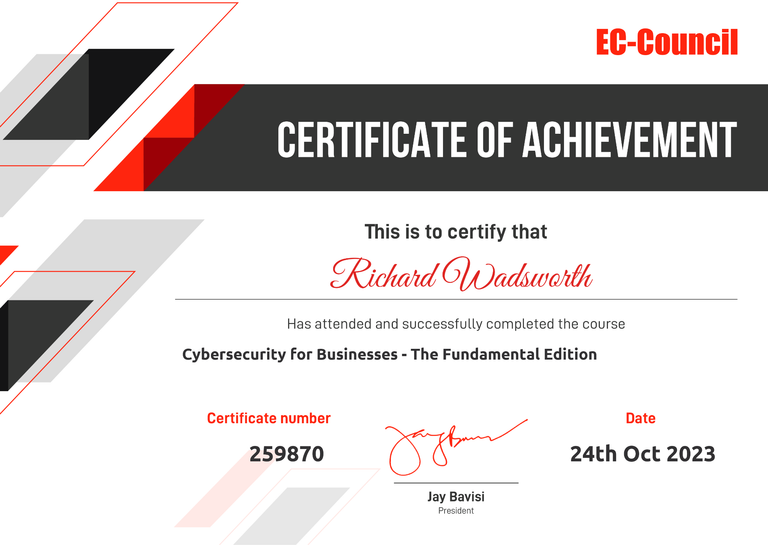
E-Council

E-Council
Pendo & Appcues
Product Management
Product Management certifications
PICUS Purple Academy
Certifications
Scrum.AS
Scrum As certifications www.srcum.as. Click here to see all the serts
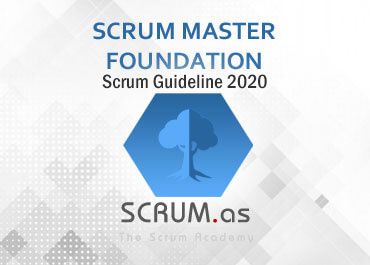
Scrum Master Foundation 2020
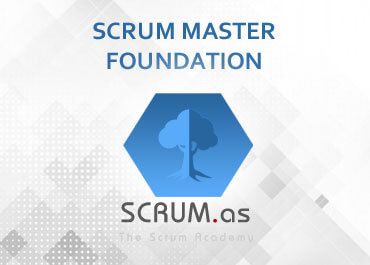
Scrum Master Foundation

Product Owner Foundation

Kanban Master Foundation

DevOPS Foundation

IBBA Blockchain Awareness

European Data Protection - GDPR

Scrum Team Member
Certified Risk Management FMEA ISO 31000 Expert
Certified Risk Management Expert | ISO 31000: 2018 | FMEA | Enterprise Risk Management | Risk Assessment | Risk Analysis.

My Certifications From ISI, IO4PM,IMBAI, IDCA, and Skillfront
Srum, Devops, Project management, and MBA degree.
Life long certifications, Click on any of these badges to go to the certificate verification page.
Quickstart
Quickstart completed courses

NIST Cyber Framework
The Cybersecurity Framework's prioritized, flexible, and cost-effective approach helps to promote the protection and resilience of critical infrastructure and other sectors important to the economy and national security.

Certified Security Sentinel
This series covers everything you need to know about becoming a Certified Security Sentinel. Students will learn about basic security, user awareness, implementing countermeasures, certified security sentinel, using the Internet at work, accessing the company's network through your assigned computer, accessing the corporate network remotely, social engineering, understanding and manipulating our target, and researching our target.

Certified Disaster Recovery Engineer
This series covers everything you need to know about becoming a certified disaster recovery engineer.

Certified Vulnerability Assessor
This series covers everything you need to know about becoming a Certified Vulnerability Assessor.
Certified Information Systems Certification and Accreditation Professional
This training series covers everything you need to know about becoming an Information Systems Certification and Accreditation Professional. Students will learn about the risk management framework, software development life cycle, categorizing information systems, selecting security controls, implementing security controls, assessing security controls, authorizing information systems, and monitoring security controls.
This certifications verifies that you have the skills needed for the practice of certifying, reviewing and accrediting the security of information systems. Individuals who are responsible for creating and implementing the processes used to evaluate risk and institute security baselines and requirements are likely to gain the most from this certification. This will be essential in making sure that the security of the information systems outweighs the potential risks to an organization from any threats. This certification is designed to provide complete guide to establishing a certified and accredited information system in any organization.
Certified Security Leadership Officer
This series of training covers all that you have to think about turning into a Certified Security Leadership Officer. Learners will find out about risk management, security management, data security, encryption, get to control ideas, activities security, incident handling and evidence, and knowing the security of a network.
Turning into a Certified Security Leadership Officer will give you a basic comprehension of current best practices, security issues, and innovation. You will be set up to deal with the security part of a business and its data innovation security tasks. A CSLO will have the option to all the more likely oversee the projects of IT in a safe way by having the basic, current information, and aptitudes required to administer the security part of any data innovation task.
Disclaimer
All logos and all trademarks are owned by their respective 3rd party owners. I am not officially affiliated with any 3rd party unless stated otherwise. No warranty or guaranteed is offered or implied. Access to the resources maybe withdrawn without notice or any reason given.
All rights reserved. rcwadsworth
We need your consent to load the translations
We use a third-party service to translate the website content that may collect data about your activity. Please review the details in the privacy policy and accept the service to view the translations.















